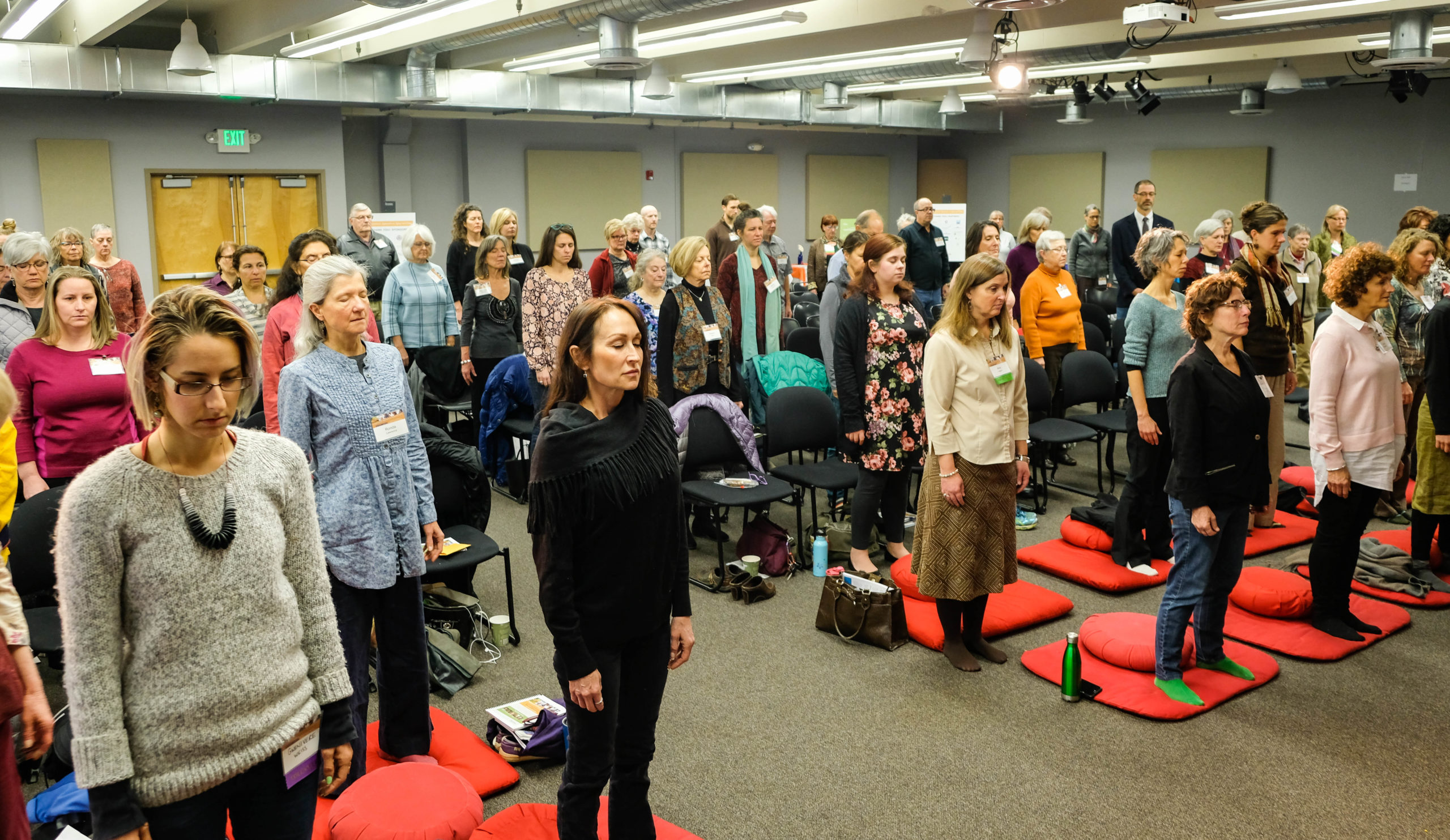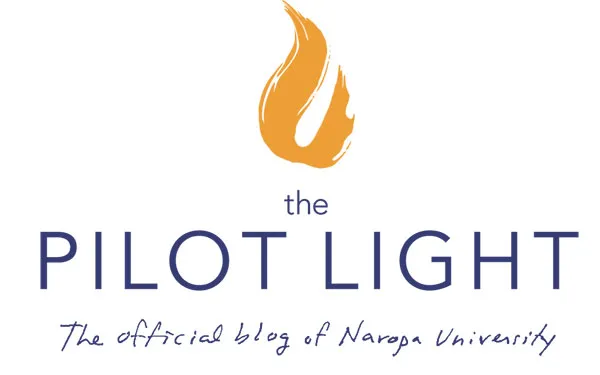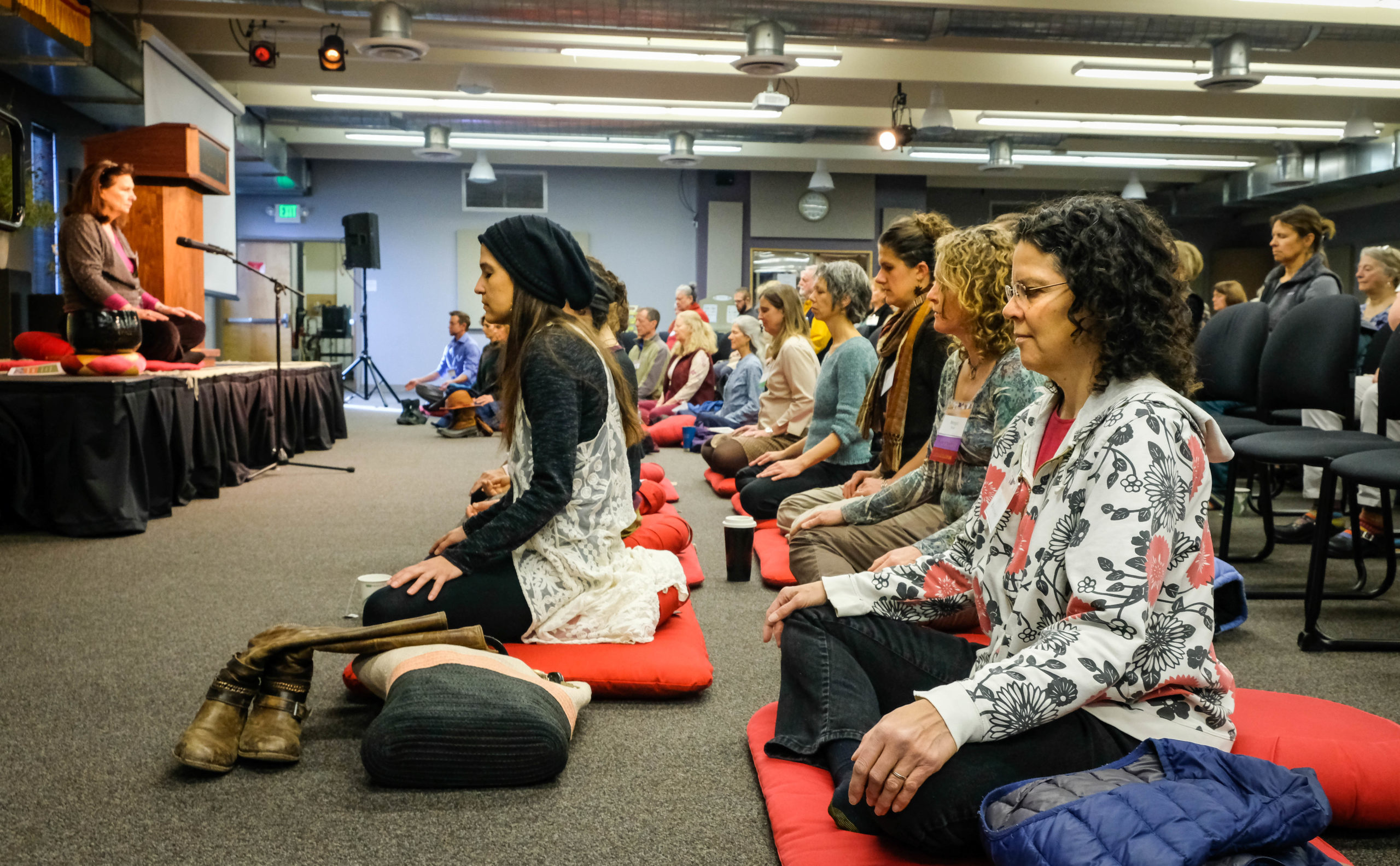
By Elaine Yuen, PhD, Associate Professor, Religious Studies & Chair, Department of Wisdom Traditions
December 7-10, 2018 Naropa University, Boulder, CO
This past December Naropa hosted a gathering of over 150 practitioners and leaders in the field of aging and dying. Clinicians, community members, as well as Naropa faculty and students joined for three days to share expertise, practice and learn from each other.
We enjoyed workshops from experts in the medical, palliative care/hospice and fields, as well as presentations from Naropa core and emeritus faculty on how contemplative practices could enrich and improve the challenges of aging and dying wisely.
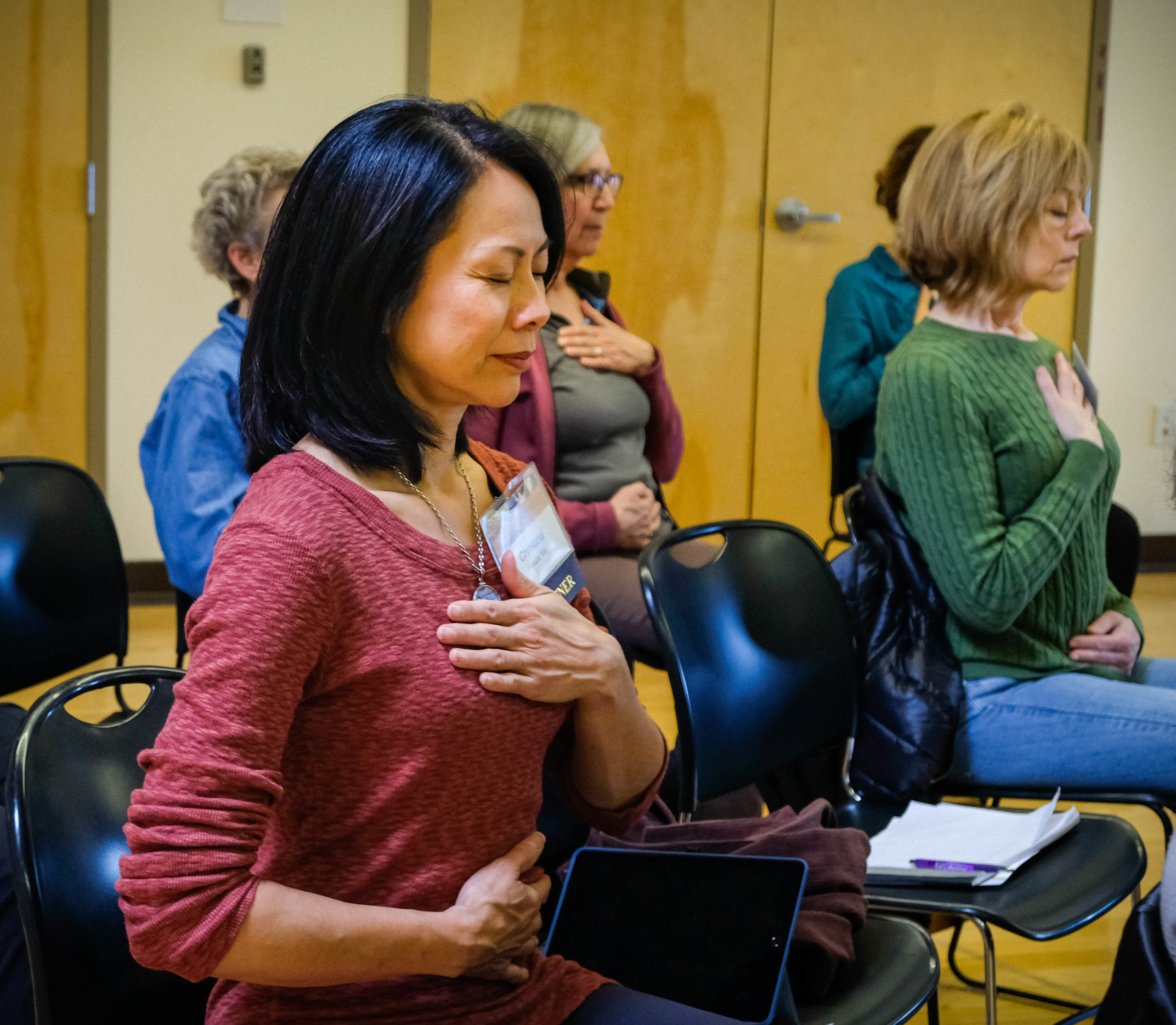
We had three themes of the conference:
- Contemplative Caring for Self & Other – workshops and presentations demonstrated different approaches to how contemplative practices could support clinical practice modalities, focusing on experiences of aging and end of life – for individuals as well as their families and caregivers.
- Structuring Systems of Care – highlights included a leadership panel that outlined the challenges in our society today as we consider aging collectively – as well as a keynote by BJ Miller on The Civic Responsibility of Dying Well. Naropa MDiv students presented a panel on Diversity in End of Life Care.
- Creative Supports for Living & Dying – Art materials such as clay, dance, as well as a movie depicting a hospice team in urban Philadelphia, allowed us to connect and understand aging and dying processes from fresh lenses.
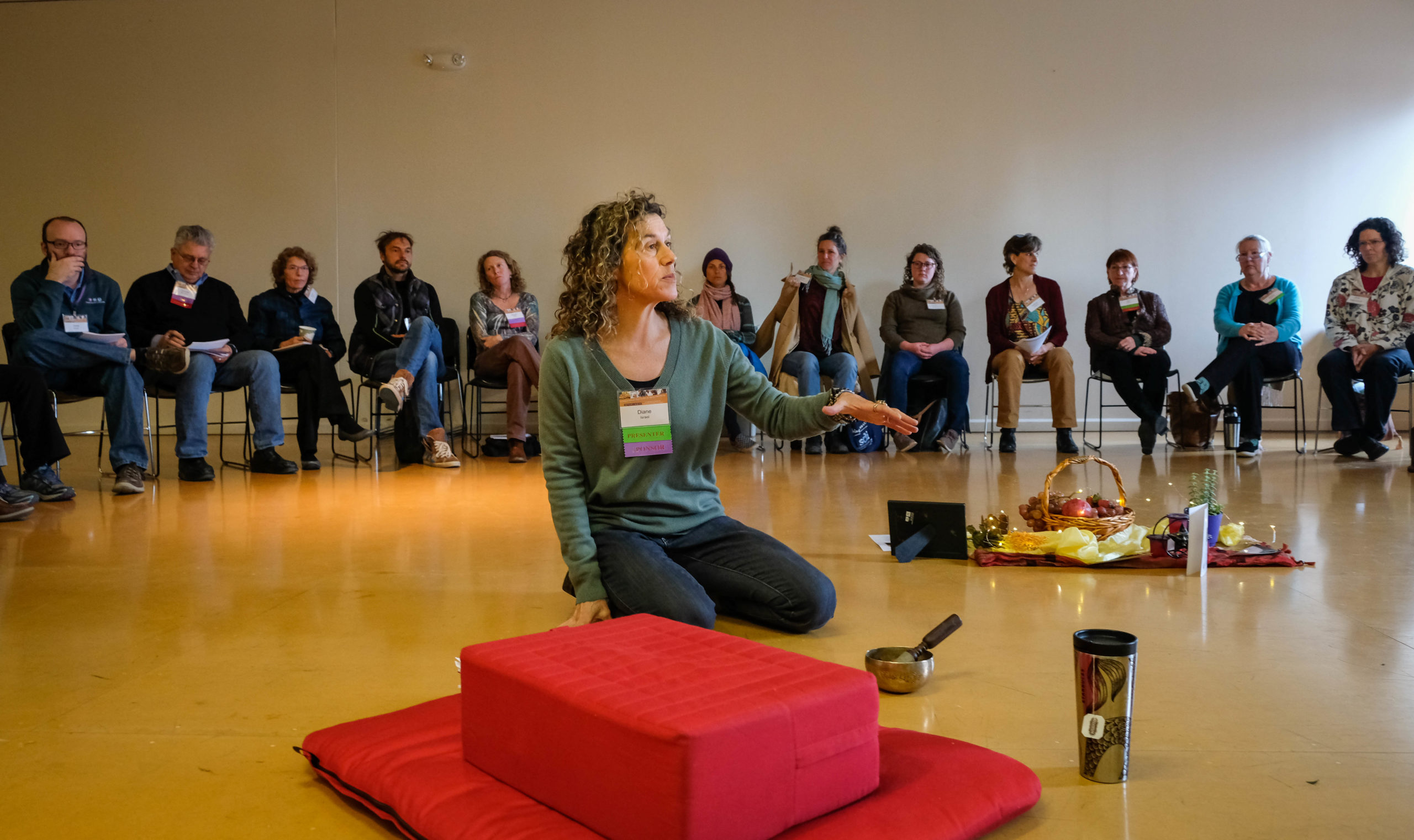
Some highlights of the conference:
- In our opening keynote, Vassar Byrd set the stage by describing the history of dying in the last century – one that has moved from dying at home to an emphasis on end of life care in medical settings. This fascinating talk set the stage for how we might consider aging and dying in innovative contexts.
- To build community, each person contemplated our aspirations for this work, then wrote on leaves and posted them on a large tree. It was wonderful to view what we would like to see grow and blossom for our work together.
- Interspersed with lectures and presentations were contemplative practices from various traditions: Buddhist meditation, Christian contemplation, yoga and mindful movement – that served to support learning and understanding, as well as to integrate the wisdom presented with everyday life.
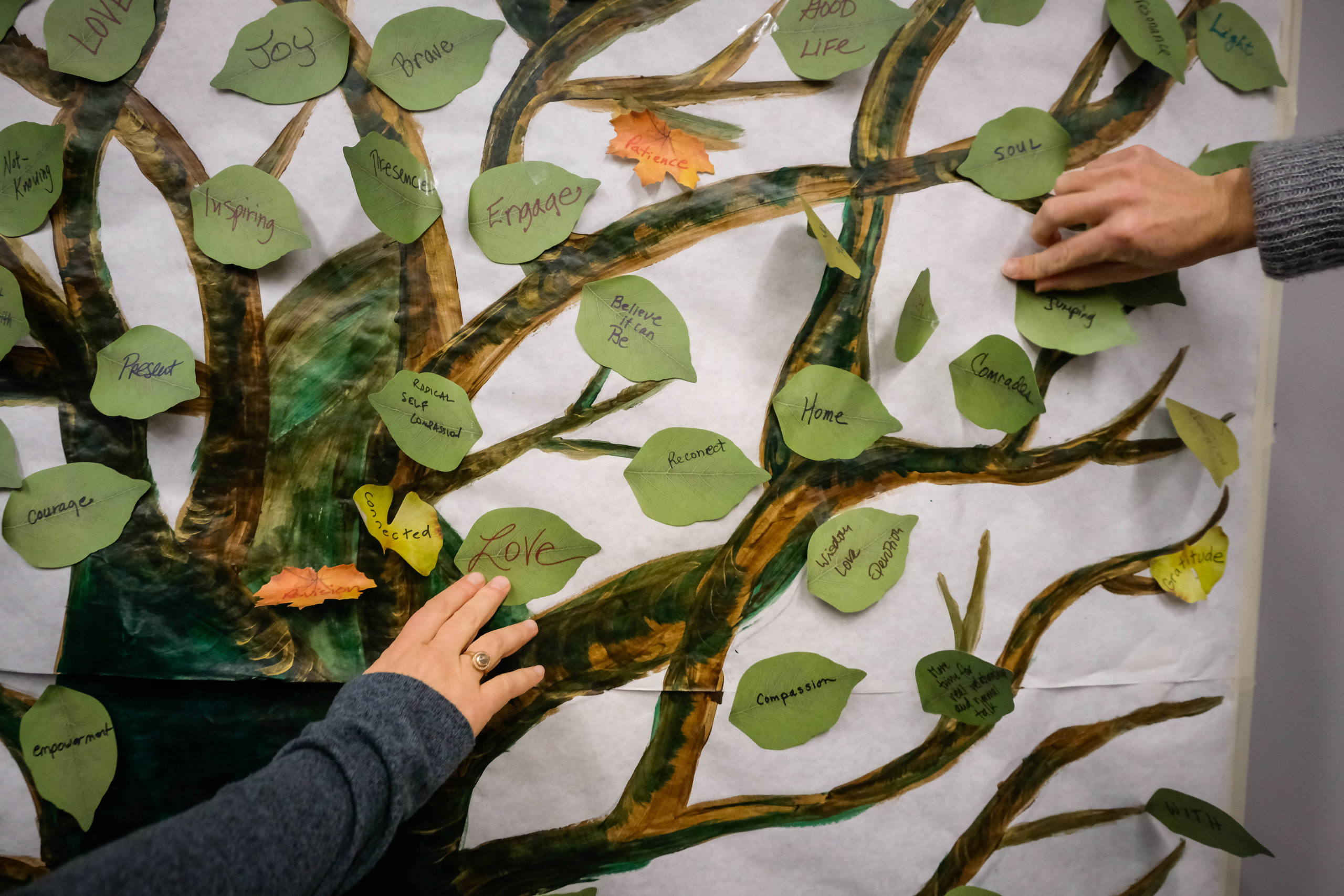
- Breakout sessions represented different perspectives and challenged our ways of considering aging and dying – and how we might be personally connected to this work.
- Vicky Howard, Megan Carnarius, and Kim Mooney presented different lenses of how elders – and their caregivers – might integrate a sense of wholeness into this time of life.
- Grief, as well as self-care practices, encouraged us to envision suffering and pain as a doorway to wise and compassionate living.
- Speakers representing universities, senior living centers, and communities explored how leadership paradigms shape how we as a society
- Cultural perspectives of death and dying were explored: those representing American Indian, Vietnamese, Hindu and Jewish wisdom traditions spoke in heartfelt ways of their family and religious practices.
- Another session documented the journey of the Rainbow elders, a community of gay elders in Boulder who have been marginalized within the gay community as elders, and in the elder communities as gay.
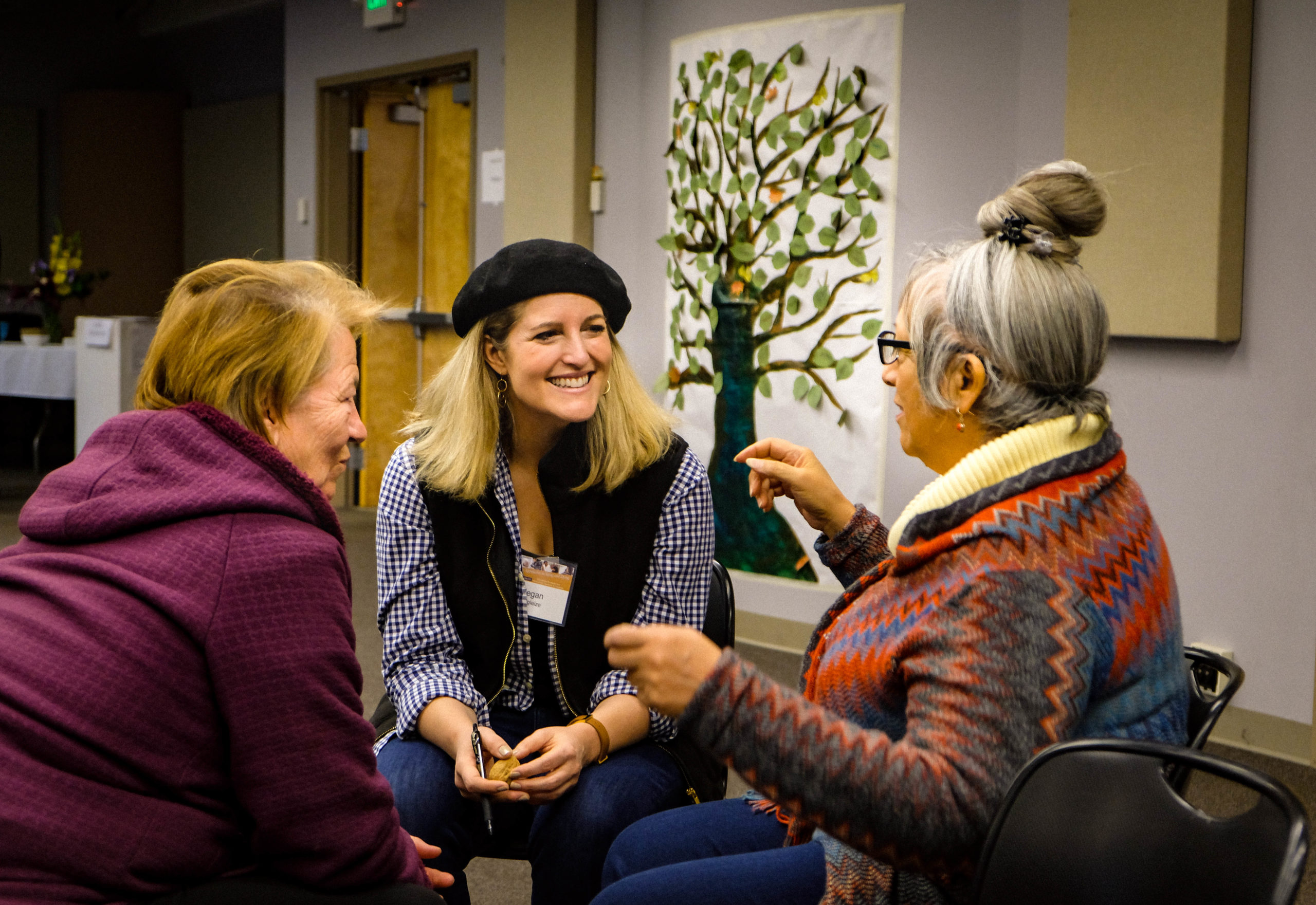
- BJ Miller, palliative care physician and leader in the field of aging, spoke on Saturday evening of how we as human beings, might consider the medical, social and spiritual aspects of aging and dying. He challenged us to find ways –individually and socially – to find meaning around the poignancy of chronic illness and death.
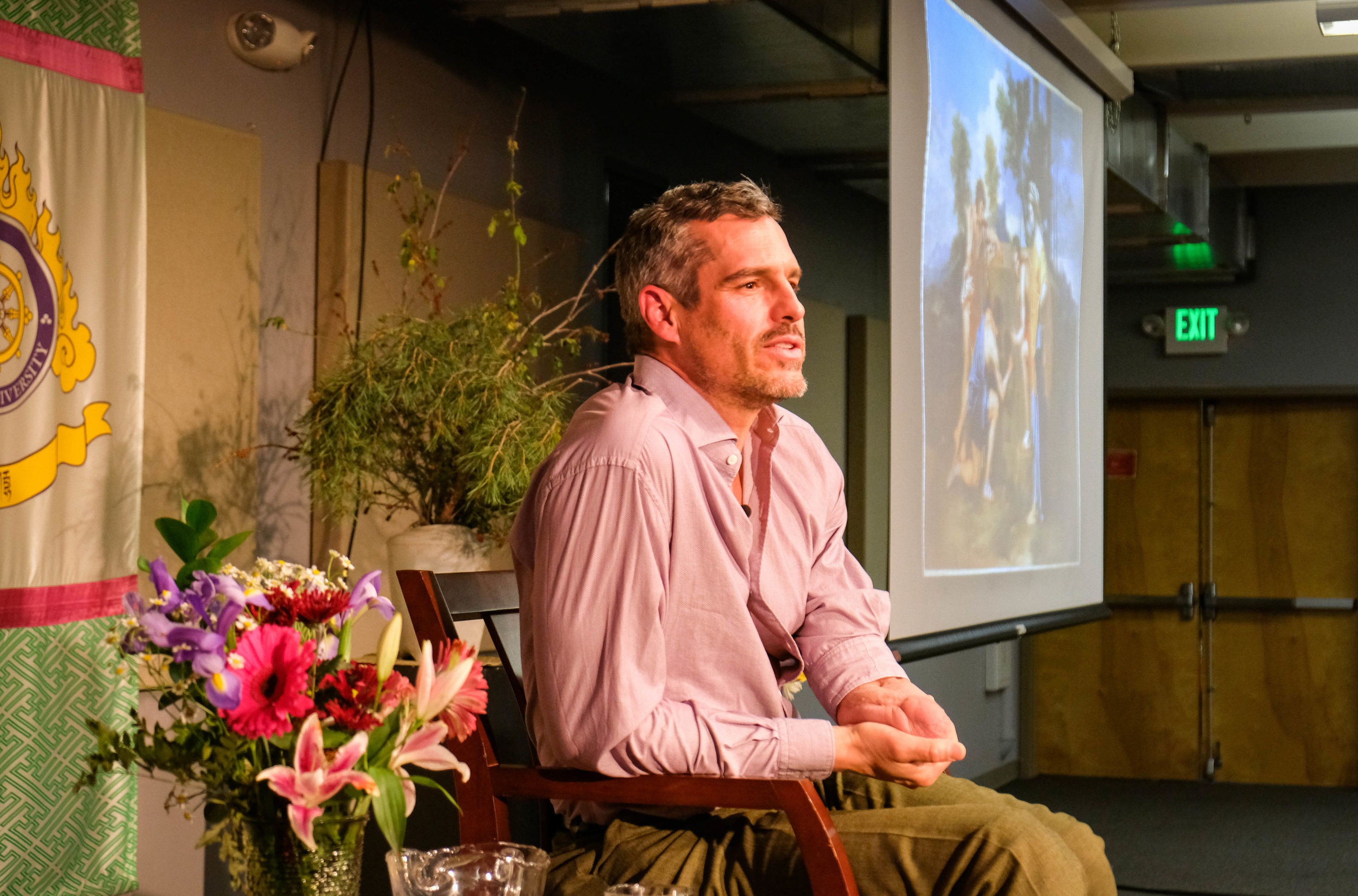
- Our conference closed on Sunday morning with a keynote from Sensei Joshin Byrnes, who gave us practical and heartfelt instructions on how we might bring the” Zen” of everyday life to our attention, intention, and actions in caring and serving others.
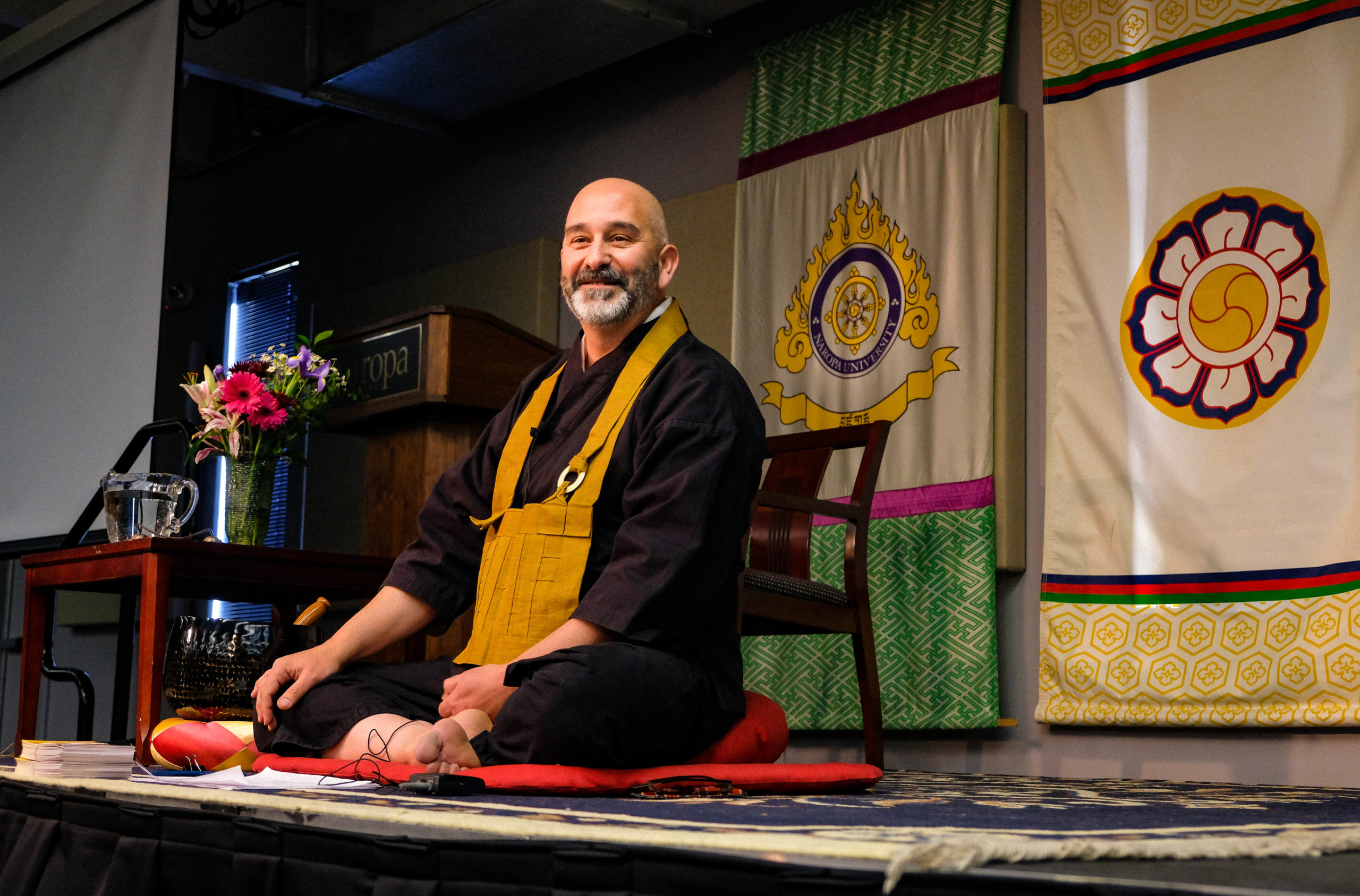
Listening to many of the sessions, this gathering brought a wealth of knowledge and experiences to caregivers and the communities they are part of. We are currently exploring ways to collaborate in the future on programming at Naropa around this work.
